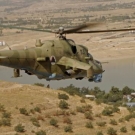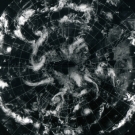Articles Tagged with #news
-
Press Pause
The Best Ways to Ask Questions
by Brendan FitzgeraldOn a March day in 2002, Walter Cronkite, Mikhail Gorbachev, Iggy Pop, and Donald Trump were all in the same New York City studio, on West 15th Street. The reason? Each...
-
Press Pause
Checking Facts Like Freddie and Eleanor
by Brendan FitzgeraldFor 45 years, Freddie Packard worked for the New Yorker as a “checker,” and for two decades he ran the magazine’s fact-checking department. Packard knew at least...
-

Press Pause
Finding Boundaries to Cross
by Brendan FitzgeraldI spent my first day as a news editor circling a 750-acre farm in Virginia, where the body of a college student had surfaced months after she’d disappeared...
-

Press Pause
One Person’s Version
by Brendan FitzgeraldAndrew Kitzenberg’s Twitter account had been dormant for a month when Dzhokhar and Tamerlan Tsarnaev began exchanging shots with the police outside his apartment. As the two Boston...
-

Press Pause
How to Headline a Tornado
by Brendan FitzgeraldIf good journalism leads us out of the woods, then bad journalism can strand us in the dark with our questions. Our series on healthy news consumption continues. On May 21,...
-

Press Pause
Edward Snowden and Exploring Terra Incognita
by Brendan FitzgeraldThe best journalism creates understanding where the world has created questions. When we confront the unknown, good journalism brings events, witnesses, storytellers, and an audience into a seamless line of...
-

News From America
Lots of Oil Fields Around Here
by Matt Ray RobisonA special Fourth of July edition of our series where an editor randomly calls people in small towns around America to see what’s happening.
-

Gallery
Somebody Call Someone
Anna ConwayNew paintings that question how much we truly influence our fate, and whether or not life is just a string of accidents.
-

Realpolitiking
The Pyongyang Papers
by The WritersNorth Korea’s intentions are unknown for the moment. But its memos are, at the very least, straightforward. The TMN staff uncovers a worldwide exclusive: internal documentation of the DPRK’s plans for the remaining calendar year.
-

News From America
Odd People Here
by Matt Ray RobisonThe United States is a huge country, much too big for the nightly news. Our series continues where one of our editors randomly calls people in small towns around America to find out what’s really going on.
-

Our Foreign Correspondence
Smog of War
by Jonathan GourlayMore than a decade after the U.S. invasion of Afghanistan—now our longest war—most Americans still know next to nothing about the people who live there, and the liberties denied them. Lessons from a rapid education.
-

The Global Desk
The Perfect Forecast
by Graham T. BeckPredicting the weather is an incredibly complicated task. Stopping it altogether is even more difficult—but that doesn’t mean scientists aren’t trying. Obsession, cloud seeding, and very powerful storms.